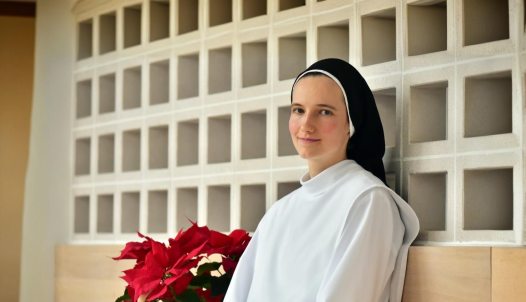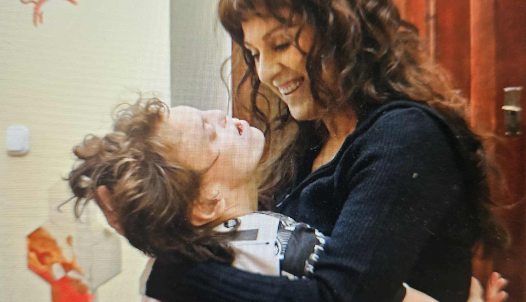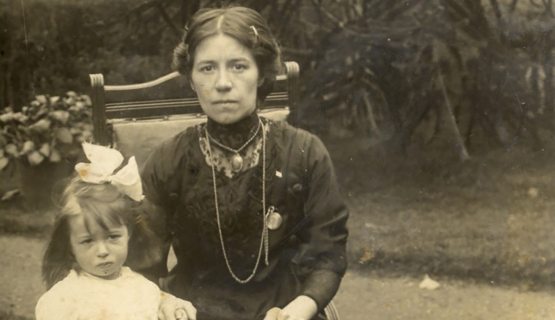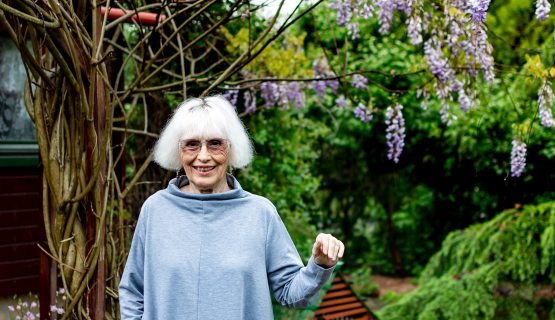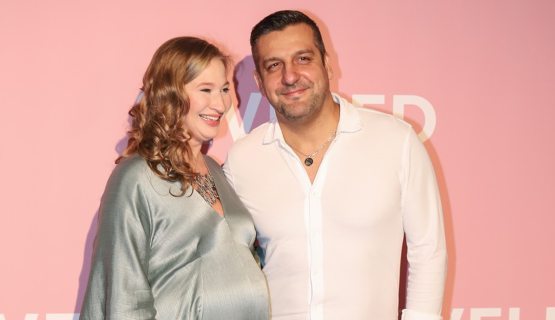Operas and operations: the adventurous life of the Marton couple
Éva Marton is the greatest Hungarian soprano of the 20th century. However, her unique career has been a duet; beside her vocal-stage qualities, her surgeon husband’s managerial input and logistical ability, his musical intuition and his help in keeping the family together played an equally important role. We had a chat with Éva Marton and Dr. Zoltán Marton in their beautiful but relatively modest home in Buda: the couple talked about their eventful lives and strength maintaining their marriage in good times and bad with engaging honesty, often interrupting one another.
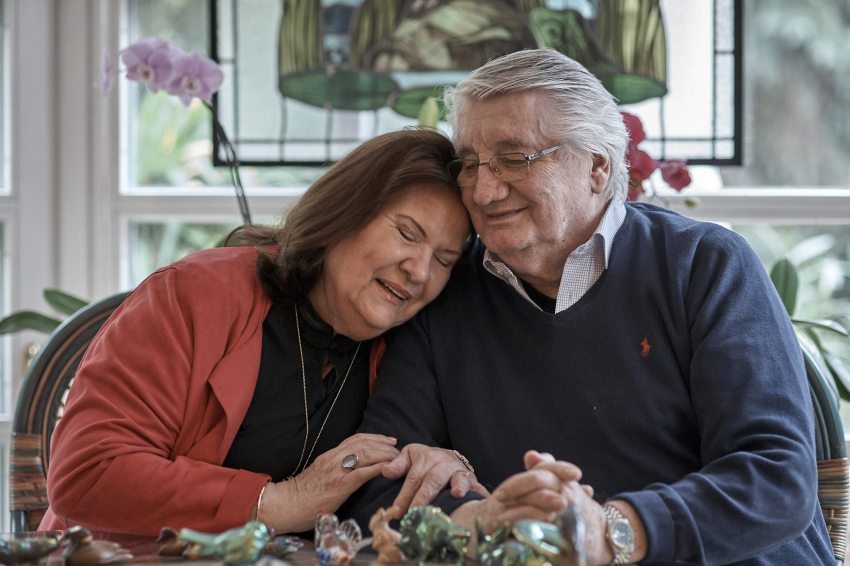
Thanks to Zoli, I was able to get an insight into those notes that document your life together. Just flicking through the events for the year 1997, it is enough to make one’s head spin seeing the endless number of appearances, trips and meetings. How could you handle this mad rush?
Éva: “Only with Zoli! It is certain that without him, I would not be the person I became (here she points out the numerous awards and diplomas on the walls), he is the fixed point in my life, the mainstay.”
Zoli: “My role was primarily logistics, I always had upcoming programmes for the next five years in my diary, I didn’t leave anything to chance and I supported Éva in everything in order that she could perform to her best ability on the stage. Although I never studied such matters, I was her impresario and secretary in addition to my surgical work, and I made sure that the children never suffered from our frenetic rhythm of life. I slept 4-5 hours a day for 30 years…”
How common is it in the artist world to find that somebody becomes a famous singer using the name of their husband and that a couple are so closely intertwined?
Éva: “It is absolutely unusual.
“We were considered oddballs because instability in relationships and changing partners is far more typical in this environment. However, I always said: why get into a Trabant when a Rolls Royce awaits me at home? For us, it was precisely our relationship that was a firm rock in the midst of every upset and every success.”
What sort of family did you come from when you married?
Éva: “I come from a simple family, my father worked as a chef in Bristol, my mother was a housewife. There were three children in the family; my brother died and my sister is still alive, thank God. Nobody studied music or singing. My singing teacher at school, Magdolna Raksányi, graduated from the music academy, she was a trained musician. She was the first to notice that I had a good voice and I should go to solfège and learn the piano. I was seven or eight when I enrolled myself to study music at No. 19 Mester Street.”
You were just eight when you arranged your own enrolment?
Éva: “That’s right, I knocked on the door of director Kató Bíró’s office by myself, saying that I would like to learn to play the piano. I already had my entrance exam but out of sheer stubbornness I said that my teacher had sent me. She must have seen something in the gap-toothed, pig-tailed little girl who I was because she surrendered and admitted me. The director was one of Béla Bartók’s last students, I have a lot to thank her for. From her I learnt that if anybody comes to you, give help, give them your honest opinion, and embrace them if they are talented!
“I played piano twice a week and went to solfège. In the meantime I began to sing, Kató Gödri was my teacher and I have much to thank her for as well. I had a crystal-clear pitch with an F of three ledger lines above the staff. I only found out later what talent was when I had the basis for comparison. I loved performing, I never had any inhibitions. Then my voice broke and so I threw myself into volleyball. This was yet another thing I couldn’t do half-heartedly and I was selected for the national youth squad.
“After a year my voice came back, but not the high notes that I had earlier, I was restricted to one octave and from here I had to recover after much hard practice.
“Meanwhile I didn’t give up playing sports and I was devouring books, each week I would carry home nine volumes from the library. After finishing school I was not taken on to the Liszt Academy. They said I was immature. I dealt with nuts and bolts for eight months and then I succeeded at the second entrance exam. At that time I was 19 but the big changes didn’t stop there because soon after I met Zoli.”
How did your husband reach this decisive moment?
Zoli: “I was born in 1938, my father was a doctor and my mother was a housewife. I had two brothers, unfortunately one is no longer alive. In the summer of 1944, together with my mother we fled the impending Soviet siege of Budapest to Szombathely. My father, who was in military service, came home from the Ukraine and then found himself in charge of a German hospital in Szombathely. When the Germans withdrew, we could have gone with them but my parents loved their homeland and turned down the offer. Then my father was charged because of his friendliness towards the Germans and only received the possibility of working as a doctor in Kemenessömjén for three years. From here we moved to Győr where my father became a district GP and then director of Győr hospital. We lived in the apartment of his famous predecessor, Dr. Aladár Petz. The cleaners sometimes reported him if he brought up the matter that the institute was not sufficiently hygienic and then he would be taken away and released a couple of days later. This is what the mindset was at the time… Then he became the senior works doctor at the wagon factory and at that time I started playing football and tennis with the ETO juniors. From here, he was appointed head of the Healthcare Department of the Office of Statistics, we were given a flat in Budapest and we could enrol in the Eötvös József Grammar School that was considered an elite institution.
“I passed my final exams in 1956 and went on to the medical school. In October we organized the association of university students, MEFESZ, and after the outbreak of the uprising we also set up the unit guarding pharmacies. On 2 November we flipped a coin to decide who would do the 36-hour medical shift – another boy ‘won’ and we never saw him again. Our house was shot at and the Russians set fire to the shop that was in the building. The fire brigade that happened to be passing managed to extinguish the blaze. Together with a doctor living in the same house, we organized a night-time fire watch. Once, a tank stuck its barrel through the window in the cellar where we were. We faced it there. We survived. Interestingly, the granddaughter of this doctor became Pavarotti’s secretary later on, which is why Luciano knew so much about us Hungarians. It’s a small world! Our house needed renovation and while this was going on, we lived in Kilián Barracks for eight months, five of us in one room; we slept on mattresses on the floor.
“In the meantime I played football in Statistics but I didn’t go to the first division of the national championship because I wanted to be a doctor. My father was on night duty in the VIII district and I started helping him out, I attended patients at home even before completing my finals. I let him sleep because he had heart problems.”
Where and how did you meet?
Zoli: “The express arrived at half past three in the early hours of Monday morning on 7 July 1963. I was knocked flat. It arrived in the form of a red-haired amazon!
“A short, green skirt and hair down to her back. I said to myself, ‘now, Marton, have courage!’ There on the patient examination table, in a bikini, lay a beautiful, 20-year-old woman, Éva.
“I examined her, she certainly didn’t have appendicitis, and the stomach complaint, the reason for her coming in, had passed by the time of treatment. There were no patients and we chatted for an hour and a half as though we had known each other for years.”
Éva: “And at that time I had absolutely no idea that I was such a pretty woman! It’s true, we really did chat during that dawn as though we had known each other forever. He was the first man in my life, I really liked him, his self-confidence was most impressive, and that he could always get along with everyone. He larked about a lot but there was always a depth to what he had to say. Later on, he was able to wrap up even the most complex matters, problems connected with family or work, so that it never hurt me.
“If something did not work out, he always used to say, we don’t know what we managed to avoid. This attitude has helped a lot in the course of our life.
“Zoli always smiled, always laughed: when he came into my life he was like a sunbeam. The next day he came to the house to ask how the patient was and to remind me about the rendezvous we had agreed on, the Kati Café in Szentkirályi Street, where we also made a blood pact. Literally! Two weeks later, he stood in front of my father and said he wanted to marry me. So it started.”
How did a young doctor become mentor to an opera singer, where did your understanding of music come from?
Zoli: “I like music and yet I have no idea where my sense for it came, perhaps it is a gift. I never sang yet I have a good ear. In 1968, while sitting at the dinner table with the family, I announced: by 1981, I’ll make a world star out of Éva. My parents looked at me incredulously, yet Éva believed in me. It was also clear for me that in order to achieve this we had to go abroad because the standard that was here in Hungary would not be sufficient.
“It took ten years for Éva to make a name for herself. This may appear to be too much time but it always happens that anyone who rises too fast is unable to mature sufficiently and becomes a falling star.”
Éva: “After getting my diploma I was not immediately taken on to the Opera in Hungary, only later, and yet I felt that they were not interested in me. Primarily Zoli was the person who saw something in me, even my own mother and father did not believe in me as much. It needed those ten years to learn the repertoire. I gradually built up step by step, Zoli refused to allow me to be sold cheap, we consciously maintained the quality. Contrary to many others, I valued not the recording companies but successes in front of audiences, and only afterwards did I start doing recordings. I fought honourably for success, not sleeping with people or riding on the coattails of record labels. In all this, Zoli’s help, foresight and perfectionism were worth as much as I did on stage. We truly are two in one, and in our successes we are as inseparable, we are so mixed together, as our blood was at that time in Kati Café...”
When did you marry and how did your life continue?
Zoli: “We took our vows in 1965 and a year later our son, Zoli, was born. We lived in a 5x4-metre room on József Boulevard, in my father’s surgery together with the baby. Éva graduated in 1968 and it took another three years before she could sing the role of the Countess from Mozart’s Marriage of Figaro at the invitation of Christoph von Dohnányi in Frankfurt. That was our first trip abroad, they would already have contracted her in the intermission and this is when the niggles with the Hungarian ministry started...”
Éva: “They wouldn’t allow Zoli to travel for the next production, Verdi’s Falstaff. Then we received an invitation to Florence and they didn’t want to let him go there, either. We agreed that I would not go alone and I cancelled the performances. The then world-famous conductor Riccardo Muti, with the involvement of the Italian foreign ministry, must have put the Hungarian culture portfolio in an embarrassing position because at the very last minute Zoli did actually get his visa. We have a photo of us standing next to our Skoda as we were about to leave…”
Zoli: “We left in the pouring rain. Just before Klagenfurt the windscreen wipers broke down in the storm. Éva had to manually turn a component all the way through the downpour. It was an adventure and when we finally arrived in the evening, the Skoda gave up the ghost. But on the right was the theatre, on the left the pension, and when, totally exhausted, we occupied the room, I poured a beer for myself, sat down, and the chair collapsed underneath me. Éva and I laughed so much in our torment that I can still hear us today… This was symbolic because this is how our international life got off the ground: Éva weary from the constant studying, but winning massive applause every evening, me still lying flat on my back, although I refused to spill a drop of my drink – and our cheerfulness never deserted us although things weren’t easy.
“In 1972, Éva and little Zoli received a visa to Germany and yet again they didn’t want to issue one for me, yet in the end things worked out. We arranged a ‘One-way ticket’, everything we had fitted in two bags. 50 marks, two suitcases and a child, this is how we left.
“In 1975, Éva sang in New York’s St. Patrick Cathedral with such etherealness and with such beautiful melismas that she received an invitation to the MET…”
How did you feel about leaving Hungary?
Éva: “We had to go, driven by the need to prove ourselves. Besides which, when for the first and last time in my life I dared ask for a few minutes with opera director Miklós Lukács in order to find out what their plans for me were, he took out a small lined booklet and I immediately saw the page was completely blank next to my name. It didn’t matter that I had sung minor and major, indeed some very hard roles, they didn’t take me seriously. A long line of sopranos stood in front of me and due to the ranking, this did not bode well for me.”
Zoli: “We knew what our goal was and we were together. Nothing else mattered. At that time, the homeland was our family and it was with the feeling that from now on we were living for ourselves that we disembarked at Frankfurt airport. In the first month, Juli Hamari helped us to live with 400 marks because the theatre didn’t pay in advance.
“In the early days we lived extraordinarily frugally, but we were nice and slim and Éva was constantly studying.”
Éva: “Even then Zoli had his eye on the goal. I remember that we received invitations to smaller theatres but he wouldn’t allow it. I told him: we have 20 marks and they are paying several hundred! Zoli just replied: the path to the Metropolitan is long indeed, Frankfurt is your level.”
Did either of you speak any German?
Éva: “No, I learnt Russian and I spoke a little Latin and Italian, I learnt that at the Liszt Academy.”
Zoli: “I didn’t either, but it was possible to learn in a few months. Later on, I heard an anecdote about myself, this one about how fast my English had improved: ‘Because Zoli asks not for ten thousand dollars for one evening, but twenty thousand!’”
And how did you manage this career arriving as you had from the other side of the Iron Curtain?
Éva: “I never negotiated with anyone, Zoli kept that side away, I had just one task which was to go onto the stage and sing to the best of my ability. I always behaved as a guest in all theatres of the world, the hosts could visit me at rehearsals and, if they wanted, welcome me, but I never sought them out, I never begged a single director. And there was never a single instance when, having sung a given series, there was not the next contract already in the bag.”
So Zoli, where does this managerial brilliance come from?
Zoli: “I don’t know where I got the sense for this, at that time there were no schools for managers, but somehow it was in my blood and the truth is that I successfully negotiated with even the smartest agents and directors. True, I did have an ‘ace up my sleeve’!”
And was it easy to find work?
Zoli: “I had to have my qualifications accredited, later on I completed the specialist surgical exam in Germany. It wasn’t easy. I applied for a job from the chairman of the German society of surgeons but he needed an accident & emergency surgeon and I am an abdominal surgeon. Then I was offered a post in Offenbach close to Frankfurt working alongside a strict Prussian professor.
“I was taken on but because I still barely spoke any German, I was put into the outpatient department where I worked three shifts and got a grasp of the language. I did everything. I was awarded a specialist surgical qualification after an hour of discussion and then I could become a senior doctor.”
Is there any similarity between singing and healing?
Zoli:
“Surgery starts, the curtain goes up – surgery finishes, the curtain goes down. Yes, as far as this goes.”
Éva: “Well, the difference is far greater! I could die on the stage then stand up and everything would go on as before, whereas if Zoli were to make a mistake, human lives would have been at stake. And a doctor is always on call: how many times did he help people feeling indisposed on our many trips! Once, exactly on my birthday, we were flying in a small aircraft one morning from Hamburg to Vienna when a gentleman became ill and then lost consciousness. Zoli resuscitated him and as a result he took command, the pilot made an emergency landing in Nürnberg and the patient was collected by ambulance. Later on we found out he survived and I sang Turandot in the Staatsoper that evening. It was an unforgettable birthday present from Zoli.”
Zoli: “But there was a case of abdominal bleeding where I helped my professor find the cause of the bleed. The female patient survived and it turned out later that she was Éva’s wardrobe lady at the Frankfurt Opera, where after all this our status rose even further.”
How was it possible to raise children in this packed life?
Zoli: “Our daughter Diána was born in 1974, eight weeks before the presentation of The Woman Without a Shadow. Three weeks after the birth I jogged with Éva in the forest to regenerate. I tended to deal with the children. When I wasn’t working I played football with Zoli and we went swimming. The family always came first with us, even if Éva happened to be working on another continent we talked several times a day and if there was a school break, I would fly to her with the children, if needs be to Manila or New York.
“It is a fundamental rule even to this day that we keep in daily contact with all members of the dispersed family.”
Did you make genuine friendships in the arts world?
Éva: “In Zoli I found everything I needed in a person. Husband, good friend, buddy. He provided humour and encouragement, he helped me memorize parts – oh Lord, how many cues! – he is the father of my children, an excellent doctor, a person I look up to. As far as I was concerned, besides my family I had neither the time nor the inclination to chat with others. When I returned to one or two familiar places, to New York, Houston, Barcelona, there were always a few lovely people I could talk with but I only ever saw them again when my career took me that way once more. Zoli is my intellectual partner as well, we went to exhibitions together, he can draw very well, we played sports together, we did so many great things! We were in absolute harmony! Our friends tended to be doctors, a singer is always on the road, it is a different life. I had no need of chatter, either: even today I am unwilling to go anywhere with others because Zoli doesn’t like going out.”
What was it like resettling in Hungary?
Zoli: “We regularly returned from the early 1980s, Éva made many recordings and occasionally she appeared at the Opera House or gave a concert. We always wanted to come back, in the middle of the 1990s we started coming to Hungary and finding out about the situation from Hungarian singers – and we started building. We have lived in this house since 2000, we are on the ground floor, our son’s family is on the first floor with our two grandchildren, Zoltán (29) who works in a Berlin bank, and Péter (26), who is in the auto industry. On the second floor, our daughter lives with her husband and our two granddaughters (12 and 9 years). My daughter and her husband design costumes for films.”
Éva: “There must be a fire burning in every person, if this is not burning within you, you are not worth anything. Zoli feeds this sacred flame in me, every day. And this fire also burns for our homeland, for our being Hungarian!”
Next year you will have been married for 55 years, so you are past even your golden wedding anniversary…
Zoli: “Plus two years of the training camp, that was quite something, too!”
Éva: “It was great being together!”
“I don’t know what else God has in mind for us but it is still very good being together. Sometimes I would like to strangle him, you can see that we are still interrupting each other even now. We were always passionate and being ourselves.
“Once my daughter said, on seeing how energetic we are, that if we are buried in the same place, the earth will still be moving in 30 years!”
Dramatic soprano Éva Marton has performed at the greatest opera houses of the world, from the New York Metropolitan to Milan’s Scala, for three decades. She has sung with partners such as Luciano Pavarotti, Plácido Domingo and Sherrill Milnes, Lorin Maazel, Zubin Mehta and Solti György, Götz Friedrich, Jean-Pierre Ponnelle and Harry Kupfer. Her diary is still packed even now: sitting on juries of singing competitions and holding courses. As former head of the singing department she is professor emerita at the Liszt Academy, senior consultant at the Hungarian State Opera, and a member of the Hungarian Academy of Arts. She is holder of many awards, including the Kossuth Prize and Artist of the Nation, the Corvin Chain and the highest state award, the Hungarian Order of St. Stephen. She is a life member of the Vienna State Opera House, Chamber Singer of the Austrian State, and in 2019 the Kennedy Center in Washington brought their gold medal to Budapest for her. In autumn 2020, the international singing competition named after her and chaired by her is being organized for the fourth occasion at the Liszt Academy.

